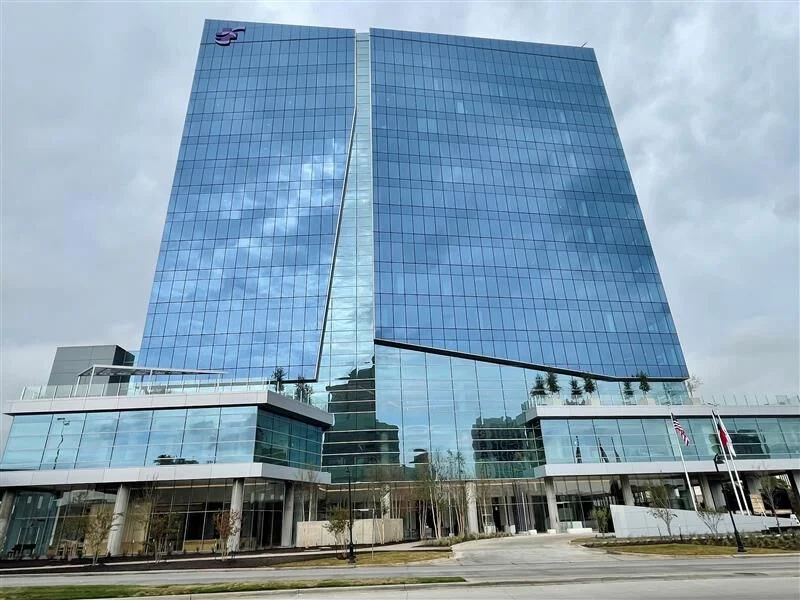Sundown Ranch: Treatment center helping youth set sun on drug abuse
Published 10:15 pm Friday, August 22, 2014

- Courtesy Sundown Ranch is a substance abuse treatment center for male and female adolescents and young adults in rural Van Zandt County.
Sundown Ranch resembles an old Western town in rural Van Zandt County.
It does not have a sterile institutional look and atmosphere. Probably no one would guess from its appearance that Sundown Ranch Inc. is a substance abuse treatment center for male and female adolescents and young adults.
“That’s one of the things that makes us unique,” Steve Echols, program director, said. “That (Western) environment really works well with adolescents and young adults.”
The mother of a client wrote in a letter to Sundown Ranch that she thought her son was “completely lost to the drug culture” when he went to the facility.
Since then, she said, “He has come back to life under the care of Sundown. While spending time with him during visitation, I felt the joy of a relationship with my son that I had not had for many years. He was appreciative, respectful, funny and optimistic and most of all, he was genuine.”
Roaming land surrounding the cluster of Western-style buildings housing the treatment facility are approximately 300 head of belted Galloway cattle, about 20 horses, a few goats and pigs. The buildings cover about 46 acres of the approximately 500-acre working ranch 11 miles south of Interstate 20 on Texas Highway 19.
The peaceful, open country setting helps alleviate resistance that adolescents and young adults would otherwise feel about going into treatment in a traditional mental health ward of a psychiatric hospital, Echols said.
Maintenance staff is responsible for upkeep and running the ranch.
Psychiatrists, psychologists, 24-hour nursing staff, master therapists, licensed chemical dependency counselors and others man the highly structured residential inpatient treatment program in which adolescents and young adults learn to live free of drugs and alcohol.
Altogether, Sundown Ranch has 140 employees.
“We have the same staff that you would find in a hospital, but it’s just in a totally different environment,” Echols said. “We do have very qualified, clinically competent staff.”
Dr. Cherye Callegan, a child psychiatrist and addictionologist well known in the Dallas-Fort Worth area, serves as medical director and psychiatrist at Sundown Ranch.
She was named Woman of the Year in medicine and health care in 2009 by the American Biographical Institute and included in a listing of America’s top psychiatrists in 2009, 2010 and 2011 by Consumers Research Council of America.
Also on the staff are Dr. Vernon Johnson, another psychiatrist, and Dr. Rob Adelman, a psychologist.
Irwin attorney Robert Power purchased the ranch with the idea in mind that it would be a good place for adolescents who have substance abuse problems and with the intent of opening a treatment facility, Echols said.
Power and his son, Jeff, fixed up the buildings and obtained a license from the state. The treatment program opened and accepted its first clients in October 1987.
Since then, Sundown Ranch has treated about 6,700 clients and usually has 65 on hand on a daily basis, ranging in age from 12 to 24.
Families hear about Sundown Ranch from families that have used the ranch, employers, insurance companies, physicians, counselors and from other treatment programs.
“Families are attracted to Sundown Ranch based on the success stories they hear and the non-hospital like atmosphere,” Echols said.
Sundown Ranch is contracted with most insurance companies, so the cost to families is usually the deductible and co-pay required by client’s insurance policy.
It is licensed as a chemical dependency treatment center by the Texas Department of State Health Services and accredited by The Joint Commission for Behavioral Healthcare, an independent, not-for-profit organization that accredits more than 20,000 healthcare programs across the U.S.
Besides its setting, another thing that differentiates Sundown Ranch from other substance abuse treatment programs is its approach to treating clients, Echols said.
“Sundown Ranch is a very individualized, clinically driven program,” he said. “What I mean by that is our treatment is not based on a number of days. You could call many facilities and they have a 30-day program or a 28-day program.”
At that point they have already identified the number of days that a client needs even though they haven’t assessed the client and don’t have a treatment plan for that client, Echols said.
“To us, that’s cookie-cutter treatment,” he said. At Sundown Ranch, a multidisciplinary treatment team assesses and evaluates each client’s needs upon admission and develops an individualized treatment plan tailored for that adolescent or young adult.
The length of clients’ stay at Sundown Ranch is based upon their need and varies from 30 days to one year.
“If we’ve got 65 clients, there’s 65 treatment plans and 65 different lengths of stay,” Echols said.
Substance abuse is the No. 1 problem on their treatment plan, but Echols said underlying issues are usually identified as treatment progresses, such as depression, anxiety, family issues or bipolar disorder.
“At the time of admission, we may have identified two or three major problem areas. Then as we get into the treatment process and in the course of therapy, other things come out. As those other things come out, you have a responsibility to address those issues, so those problems and are added to the treatment plan as needed,” Echols said.
For every problem area on the treatment plan, Sundown Ranch lists goals, objectives and strategies and makes clinical recommendations to the family and client for what the client needs to accomplish before being ready to step down to a lower level of care and be in out-patient treatment.
“You have to treat the whole client; you can’t just treat substance abuse and let that be it,” Echols said.
Sundown Ranch clients “get up at 6:15 in the morning and they are doing something all day every day until 9:30 in the evening,” he said.
Their day consist of individual therapy, group therapy, attending a charter school to continue their academics, chemical education, relapse prevention, anger management, spirituality groups, self esteem aids, physical activities such as working out with weights or aerobics, volleyball, basketball and nature hikes.
“Participation (in the various activities) is mandatory,” Echols said. There are no TV’s and no electronics, which Echols said would be a distraction to the clients focusing on themselves to address their problems.
Clients are divided into two teams: one for 12 to 17-year-olds and the other for 18 to 24-year-olds.
There are two core components of the Sundown Ranch treatment program, Echols said: the 12-step Alcoholics Anonymous program and Rational Emotive Behavior Therapy, which is a form of cognitive behavioral therapy.
“We did a performance improvement project one year looking at the management of anger and aggressive behavior of adolescents during the course of substance abuse treatment and we received a national award for that project,” Echols said. It was the 2004 Ernest Amory Codman Award from The Joint Commission for Behavioral Healthcare.
The Western-style buildings housing Sundown Ranch’s treatment program include a boys’ dorm, a girls’ dorm, a rustic café, a 24-hour nurses station, counseling offices, group rooms, weight room, art room, family therapy room and various offices.
The ranch has a 12-step Alcoholics Anonymous trail around a lake, a Frisbee golf course around the lake, a ropes course and provides equine therapy.
Clients do their own laundry. The ranch has a registered dietitian who can arrange special meals for clients who need them. Instead of institutional type food, the café serves nutritional home cooking style meals.
The overall main purpose of Sundown Ranch, Echols said, “is to help adolescents and young adults who are struggling with substance abuse to get them back to a life free of using alcohol and drugs and being successful in reaching whatever goals they have.”
Care after the client leaves is important, Echols said.
“If your child leaves here and you don’t follow through with the after-care plan, that’s a setup for failure. But if we get to the underlying issues while they are here and the after-care plan is followed through with, that’s a recipe for success.”
Sundown Ranch has a 70 percent success rate, which is higher the national average, Echols said.
Correspondence from parents and former clients reveals some of the successes.
A mother wrote, “I can’t begin to thank you and your staff at Sundown for what you started with my son. Sobriety has given him a new lease on life … the work you’re doing at Sundown is nothing short of amazing.”
A former client wrote, “Sundown Ranch without a doubt saved my life. Today I … have reached goals that I once thought to be out of my reach. I graduated from high school and was accepted to the university of my choice where I plan to obtain a degree in psychology and hopefully one day be able to reach out to young addicts as much as the entire Sundown Ranch staff helped me. Thank you for helping me have a life worth living.”






